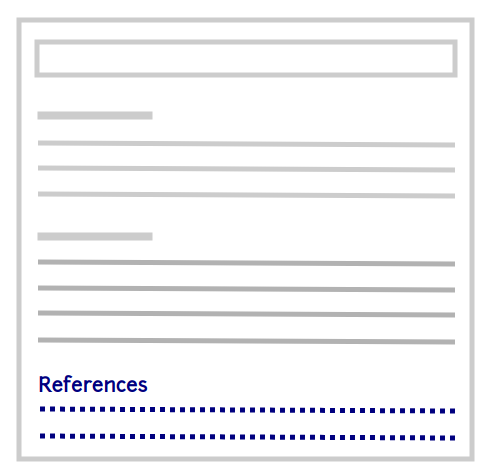How to read a research paper: Best practice?
Read any research paper using the three-iteration method described below to get maximum knowledge in minimum time from it.

**First Iteration**
1- Read the topic with a very focused mind i.e, full concentration.
- If some words are new then do an internet search (view image search tab too) and understand what it means

2- Read the outlines of the paper thoroughly.
- Headings, Subheadings
- Look into how the author has organized the contents in the paper.

3- Read the abstract.

4- Read the conclusion

The first iteration should take a maximum of 8 to 12 minutes on average. Repeat the above steps if you are not clear. If you are taking more time you are cheating with yourself, so be more disciplined.
**Second Iteration**
5- Take a look at the references and do a surface reading of them.
- Specifically the title of the cited papers.

6- Take a look at the diagrams
- If figures are present take a studious look at them and try to understand what the figures are trying to tell.

7- Take a look at the tables
- If figures are present look at them and understand.

The second iteration should take around 8 to 10 minutes on average.
**Third Iteration**
8- Read the complete paper using the pattern in steps 9 and 10.
9- Use this pattern:
9.1 First read the abstract
9.2 Read the conclusion
9.3 Read the methodology/process followed
9.4 Read the experiment section
9.4 Read the results
9.5 Read the evaluation, discussion
10- Then
10.1. Read the introduction
10.2. Read the Literature Review/Related Work Section
10.3. Repeat from step 9 to 10 again, if you are not clear.

**Recommendation & Best Practices**
a- Sit in an external noise free place. I prefer morning from(4 to 6) and night(9 -12).
b- Place a bottle of water in front, you might need liquid oxygen or some hydration.

c- Use Multiple Screens/Join Displays, if you have an extra monitor. Or you can use the printed copy if you don’t like reading from the computer screen.

d- Do not distract your mind by watching a Facebook post, movie, spiritual talks, or something else in between.
e- Alternatively you can make an audiobook of the paper and listen to it. You can do it with a simple python script.
f- To download research papers (sci-hub.st, follow its Twitter page to know their latest URL; they keep on changing domain and keep those posted on Twitter)https://twitter.com/sci_hub?lang=en
g- Don’t take too much time in reading and understanding. If you are taking more time you are cheating yourself. Personally, I would say a minimum of 3 to a maximum of 8 hours would be enough.
h- Don’t Hesitate to do a google search.
i- Don’t just read for the sake of finishing, read with the goal to understand.
j- While searching specific terms take a look through the image search tab, as often there is a lot of visual information on the topic.
k- Read the whole paper at once without any breaks in between.
l- You can discuss that with your peers with the same interest or knowledge domain for further understanding. Discussion and debate always help in understanding better.
Besides that all papers may not be of good quality, possess clarity, some may be poorly written. To verify if a paper is of high quality or not take the number of citations, the author's background, publishing journal, or conference standards as the reference. Upon verifying if it’s not up to the standards then it’s not your mistake, let it go. In some cases sometimes you might be new to the domain, unfamiliar with the terms, or even research methodologies, statistical analysis techniques and tools, mathematics. In that case, keep the paper aside and upgrade yourself need to upgrade yourself by feeding the necessary background knowledge.
